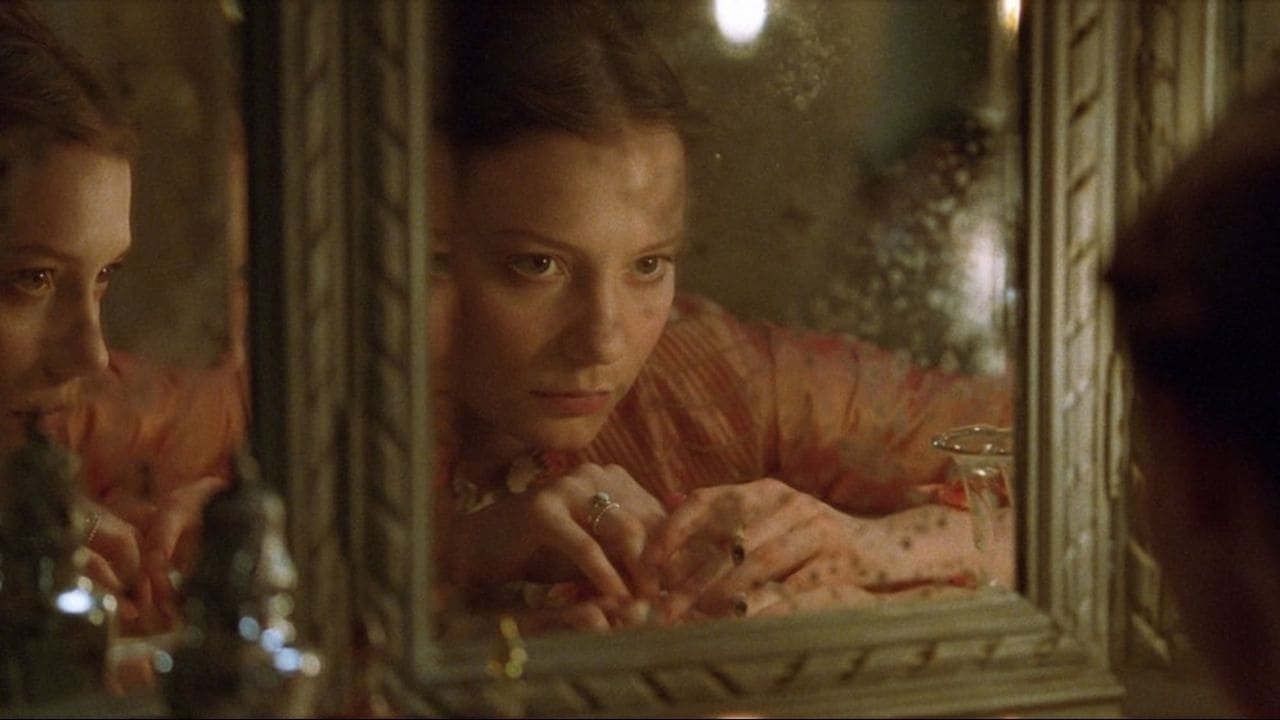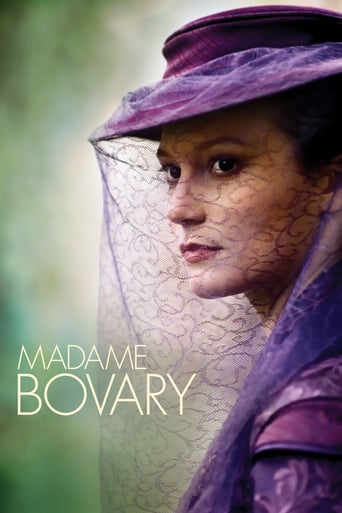

Why? Do-overs of a classic such as this are unnecessary when the original stands so far above this lackluster spiritless tale of milk toast. It begs the question why anyone would be drawn to this M. Bovary, unrecognizable as Flaubert's reckless and wild Emma. I could go on but why?
... View MoreThe Emma Bovary of this movie was not charming, not attractive, not spirited, not well intentioned, not seemingly disturbed by her own conduct, and displayed no real depth of character, and she thereby offered me no reason to somehow bond emotionally with her as she stumbled into a tragic life of her own making; I never became invested in the outcome beyond increasingly wanting the story to end. The other characters in this movie were almost all as equally unmoving and dull. When the movie was over, it was not over soon enough. Maybe it was the fault of the director that this thing was a stinker. Whatever the problem with this movie, don't subject yourself to it.
... View MoreCasting is totally off. Charles Bovary is supposed to be a large, good-natured, undemanding drudge of a man, hard-working and country bumpkin-ish without any slim, well-tailored glamour. Instead we get this svelte, firm, and resolute executive type with patent-leather hair. (Don't know if he ever did it, but the young Gerard Depardieu is the perfect physical type.) This is important because her spouse's rustic dullness as she perceives it has to be seen in the actor chosen. The Emma character has no obvious allure in this adaptation. Why are these men so attracted to her beyond an impression that she'd be "easy"? The whole plot involving Leon's legitimate reasons for visiting the house is mangled, as is the genesis of the attempt by Charles to correct Hippolyte's medical issue and the surgery's outcome. Boneheaded decisions abound, such as the decision to change the sumptuous, romantic ball that quickened Emma's economic and sensual envy into a grubby, sweaty stag hunt. Worst of all its many bad decisions, this film totally eliminates the Bovarys' baby daughter Berthe, whose existence is essential to our understanding of how huge the final tragedy really is and its domino effects far beyond Emma and Charles.I rarely write reviews but, when such violence is done to one of the great works of world literature, I do get annoyed. Apart from a bit of recognition for production values including cinematography, sets, location detail, costumes, I have to give this sloppy, bloodless and point-missing attempt the welcome it deserves.
... View MoreMia Wasikowska in this new, atmospheric film adaptation of "Madame Bovary" (a revolutionary classic) makes a fascinating, sensitive, and convincing Emma; one that resembles not so much previous Bovary's from previous films, but actually the complicated, twenty-something, anti- heroine of the novel, which I've long loved. To me she captures a lot of the paradoxes and ambiguous aspects of Emma, and manages to create empathy while making so many foolish, self-destructive choices. I've watched the film twice, and by the second viewing I got past the differences from the book (I know all the dialogue and scenes) and the gradual pace of the film, and got into the stillness that builds to the emotional release. I haven't really felt any movie has come close to capturing the book (which may be an impossible feat) but this one has it's own poetic perspective, mystique and beauty (without the irony of the novel) and Mia's portrayal has the enigmatic, haunting qualities that have made me a Bovary addict.Scenes of Emma running ornately clad through cow pastures vividly show her stranger-in-a-strange-land status (a peacock surrounded by peasantry). There were many references to her conflicted relationship to nature, including the hunt with the Marquis that I thought worked well, showing her, after the killing of the stag, seeking some power equal to men - in her case, she expressed it in her sexuality (through adultery), and conspicuous consumption; of course, this didn't work out too well. I think that in both the book and this film, Emma is seeking some measure of power, and of course love, but in a very unconscious way. The final, climactic scene was movingly done; it felt real to me. This version of "Madame Bovary" is quite haunting, with a sad beauty of its own.The cinematography and the costumes are simply gorgeous, but they're more than eye-candy, they are integrally connected to the emotional changes in Emma and the times in which she lived.
... View More